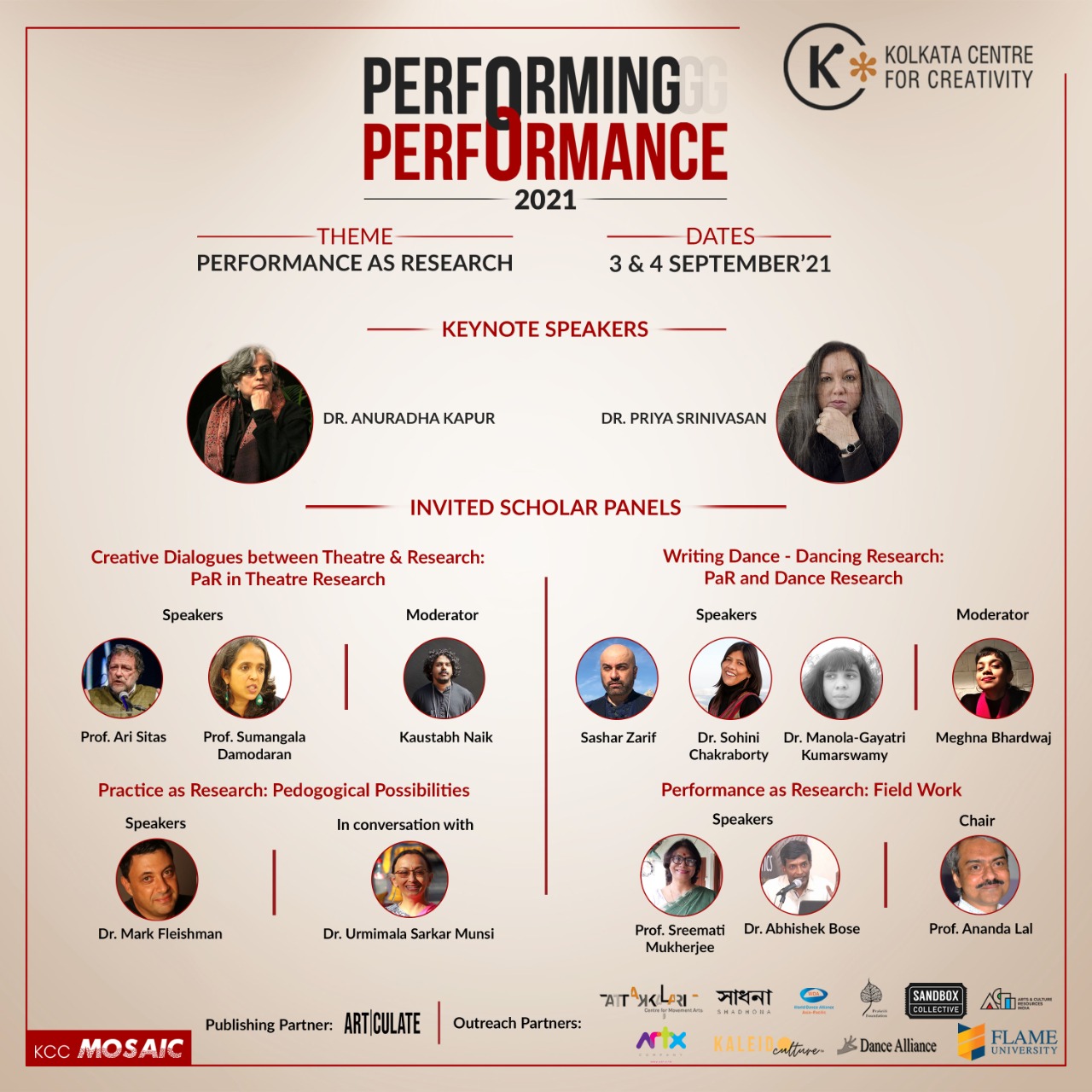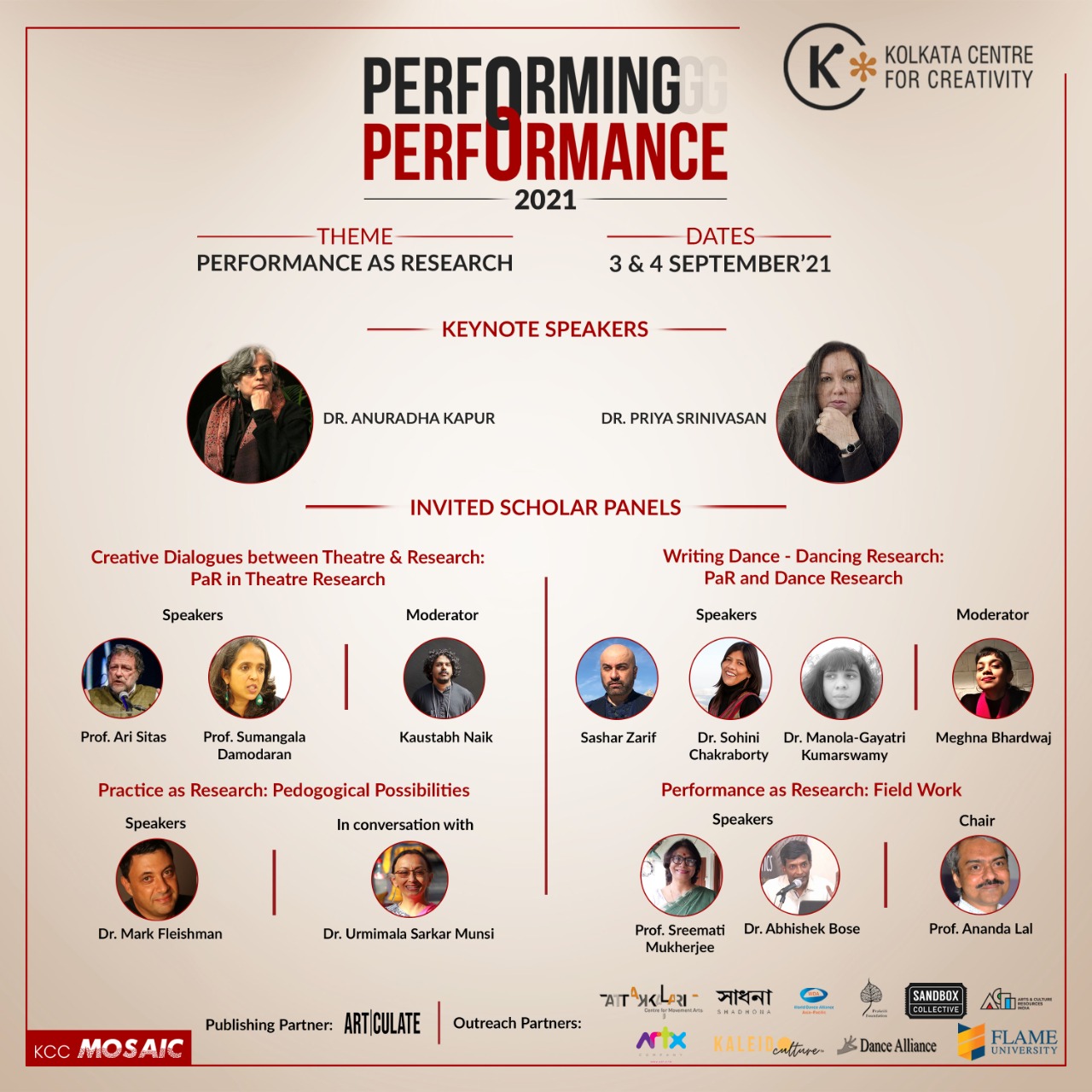PERFORMING PERFORMANCE 2021
Performing Performance (2021) was a 2-day annual conference on the Performing Arts. This year, the theme for the conference was ‘Performance as Research’. The program was curated by two eminent personalities in the field of academia, Prof. Ananda Lal and Dr. Urmimala Sarkar Munsi. The conference touched upon subthemes like ‘Practice as Research or Performance as Research: Pedagogical Possibilities’, ‘Performance as Research in Theatre Research: Creative Dialogues between Theatre & Research’, ‘Writing Dance - Dancing Research: Performance as Research and Dance Research’ and ‘Practice as/ based/ led Research’. The 2-day conference included sessions by Keynote Speakers (Dr. Anuradha Kapur and Dr. Priya Srinivasan), Invited Scholar Panel, Young Scholar Forum, and performance and discussion. The conference was attended by around a hundred attendees on both days
.jpg)
Meet The Curators
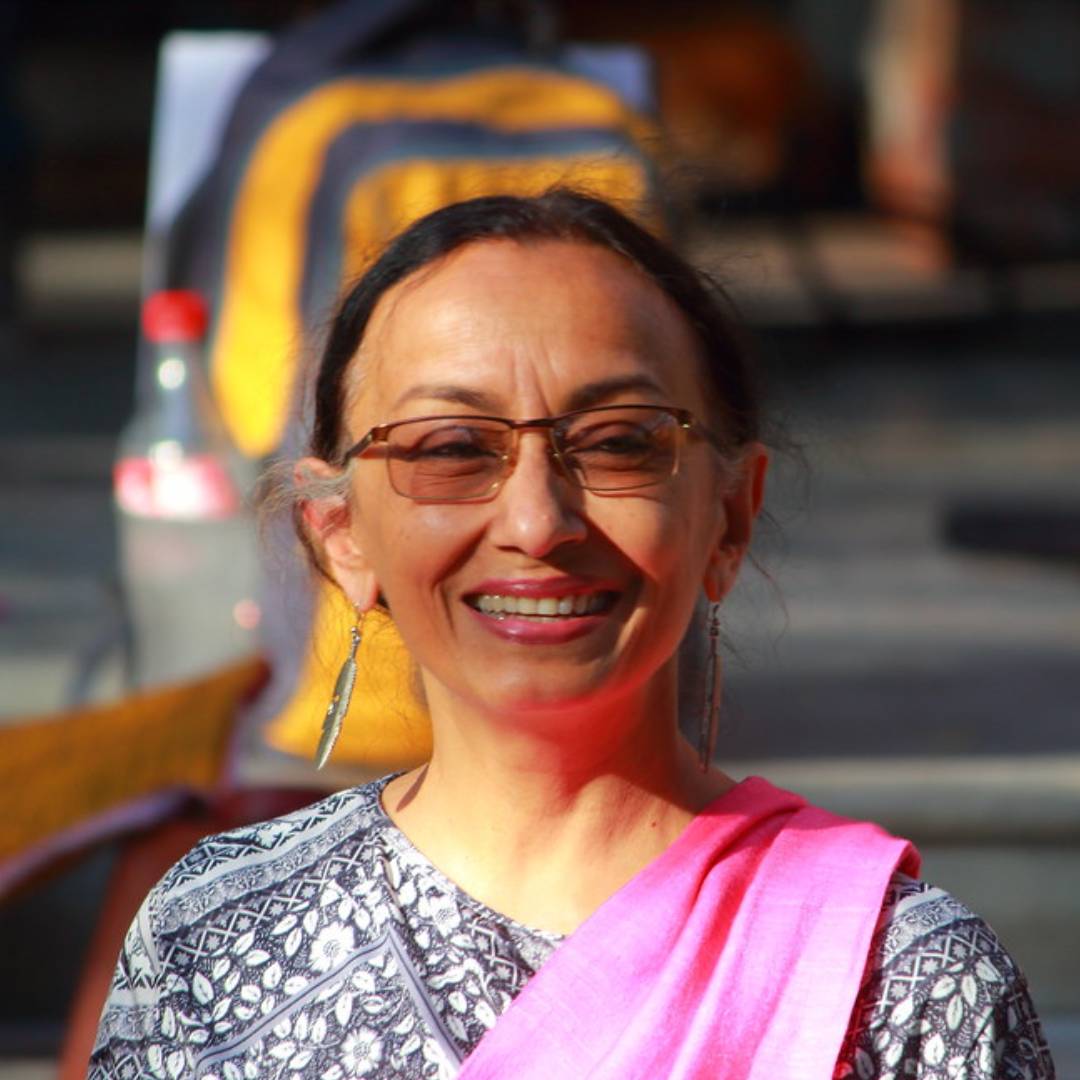

Keynote Speakers


Invited Speakers
Writing Dance - Dancing Research: PaR & Dance Research
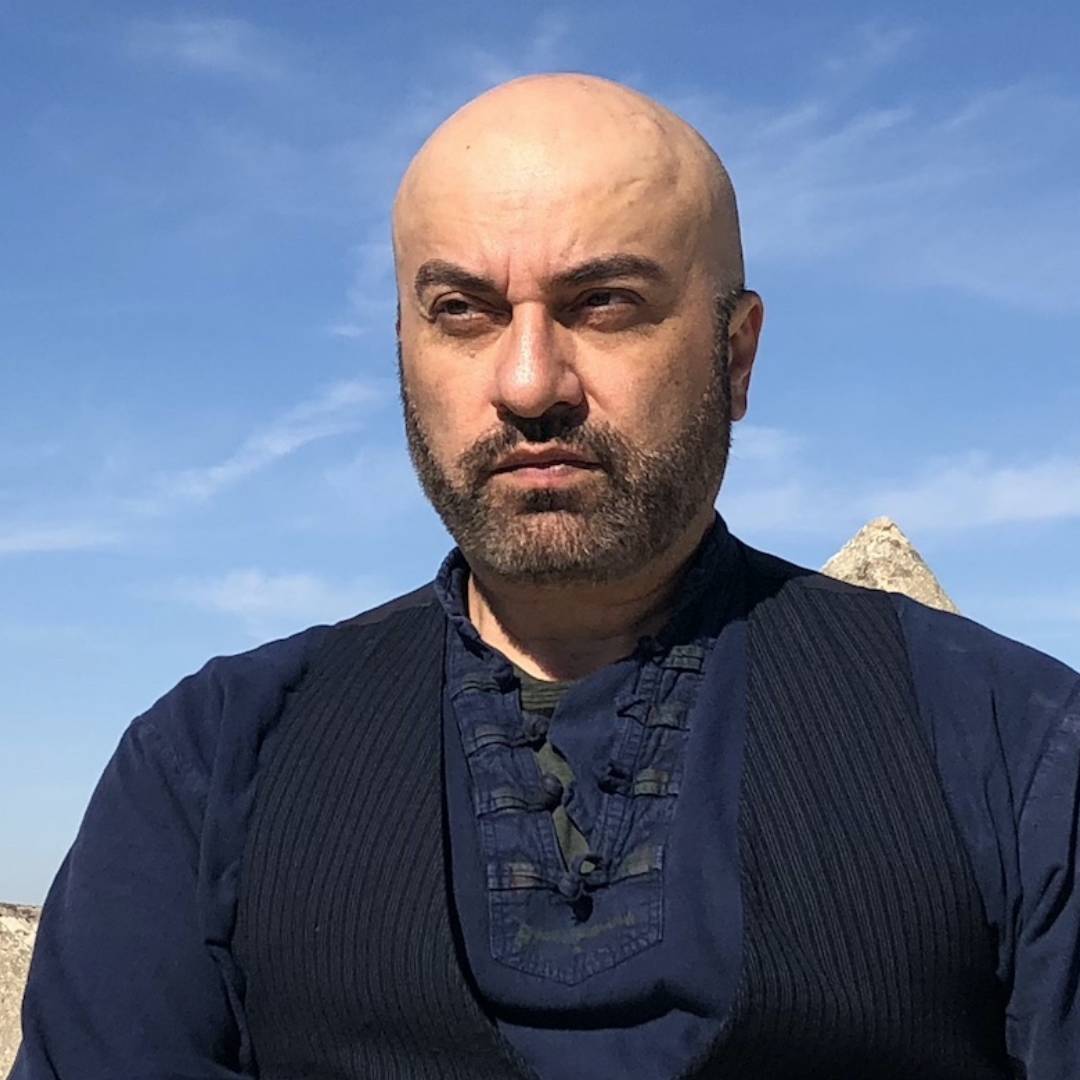
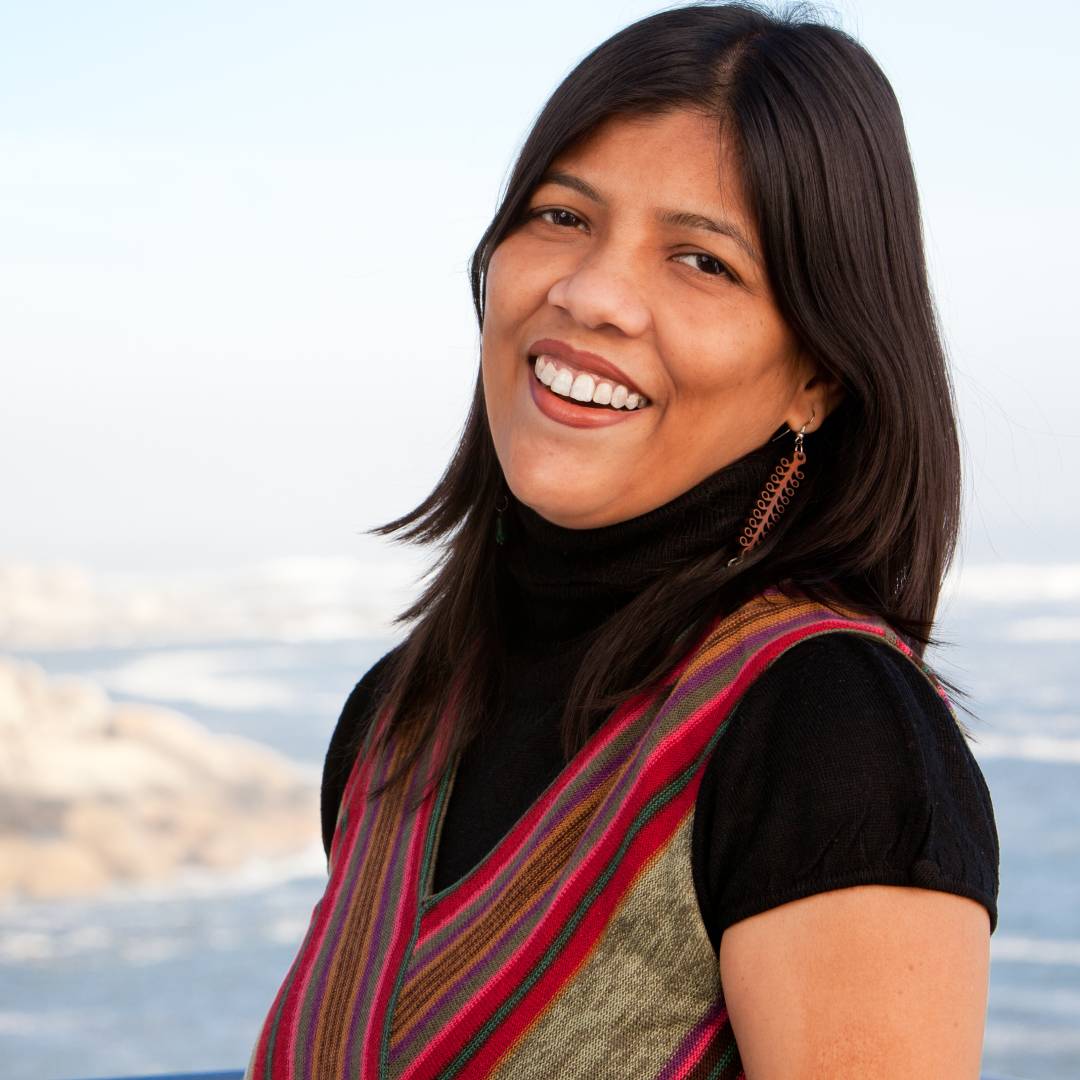

Moderator
Meghna Bhardwaj is a dancer/dance-scholar, trained in Ballet, Modern, and Contemporary techniques, in Delhi, Berlin, and Israel, Meghna has been a resident at FACETS, Attakalari, Bangalore (2017) Gati Summer Dance Residency, Delhi (2015); Choreolab, Singapore (2015); and American Dance Festival, WDA, China (2014). She has been part of the repertory company at The Danceworx, India, and has danced for the ex-director of Korean National Contemporary Dance Company, Ahn- Aesoon, and Indian choreographer and activist Mandeep Raikhy. She is an awardee of INLAKS scholarship, Mumbai (2017), IFTR Bursary award (2016), MASA need-based scholarship at Dance Journey Program, Kibbutz Contemporary Dance Company, Israel (2014), and several tuition-fee off scholarships from World Dance Alliance in 2011, 2014, and 2015. Meghna has a doctorate from Jawaharlal Nehru University, and is teaching at the Department of Art and Performing Arts, Shiv Nadar University. Currently, Meghna is in a virtual residency at Artefact, Dance Nucleus, Singapore, during which she is building her independent choreographic project titled, 'Yarning'.

Invited Speakers
Practice as Research: Pedagogical Possibilities
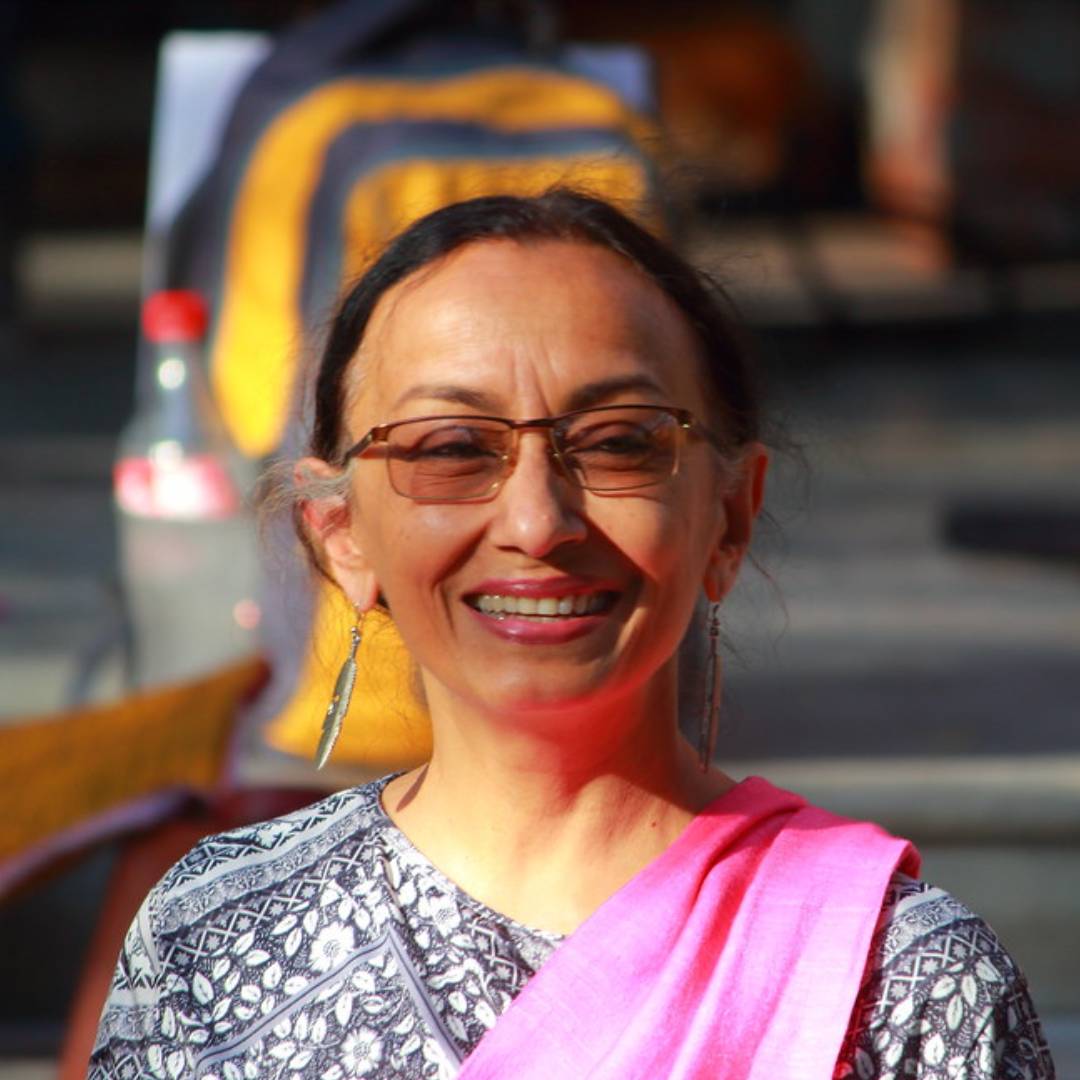
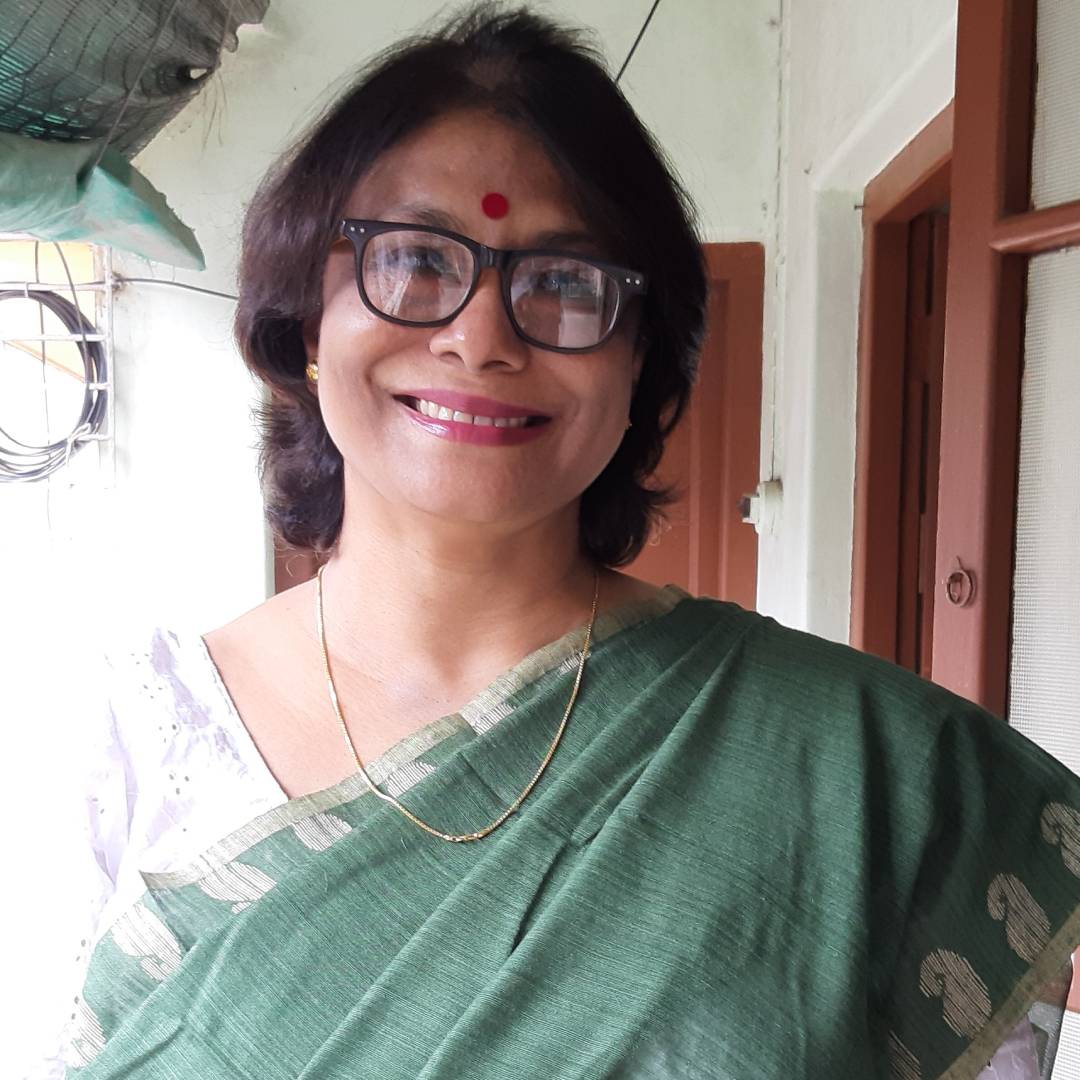
Invited Speakers
Performance as Research: Field Work

 2021-08-25 16:59:53.jpg)
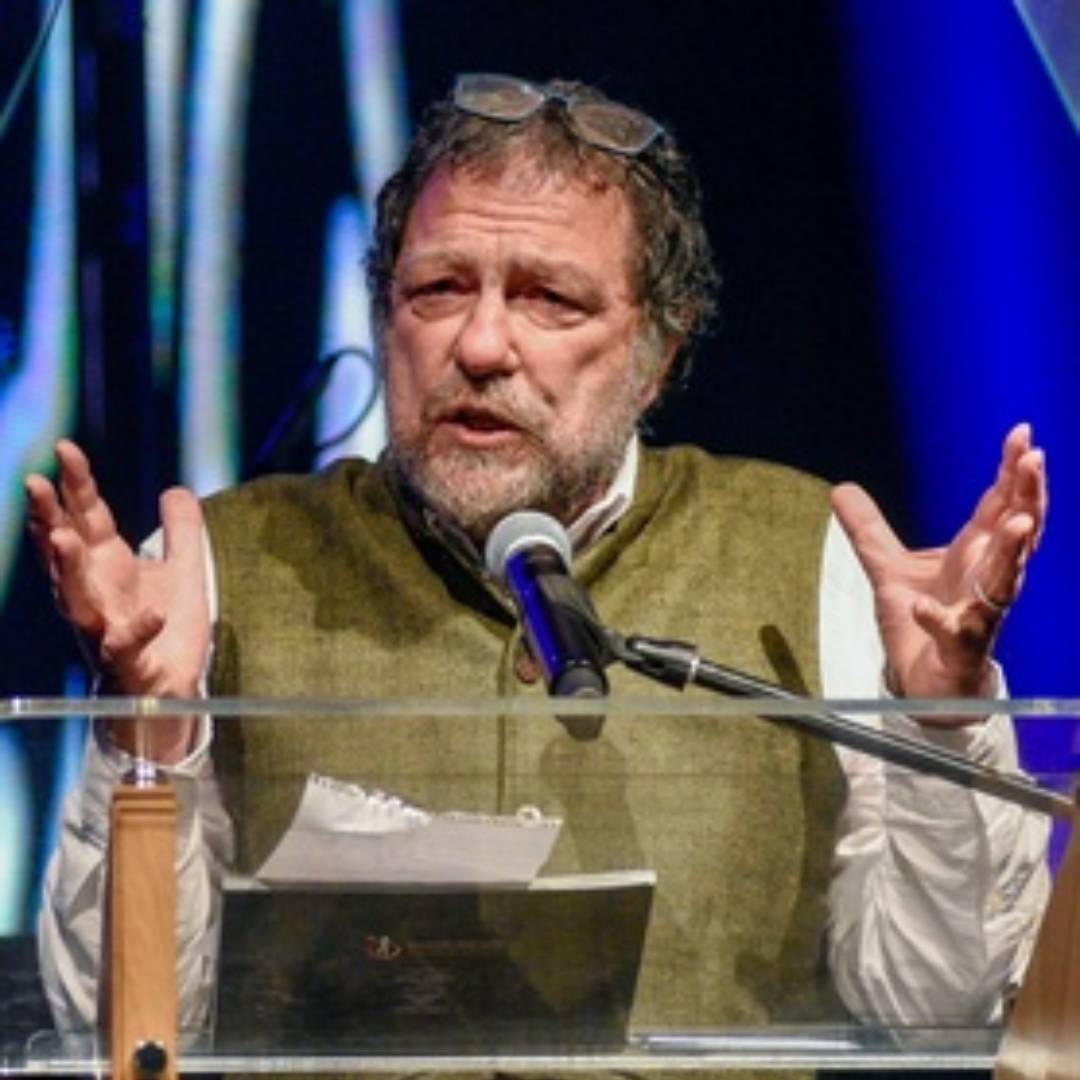
Invited Speakers
Creative Dialogues between theatre and research: PaR in theatre research
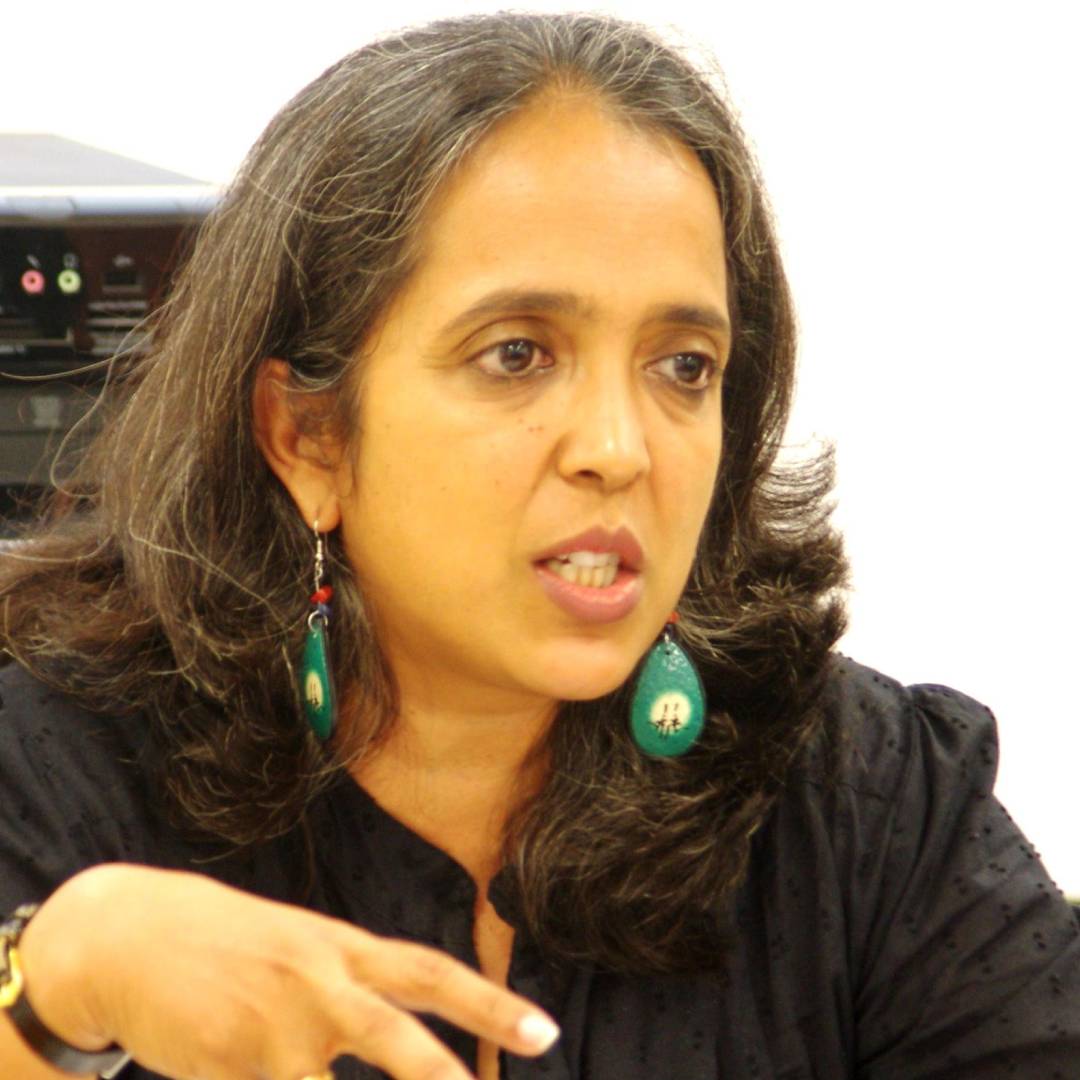
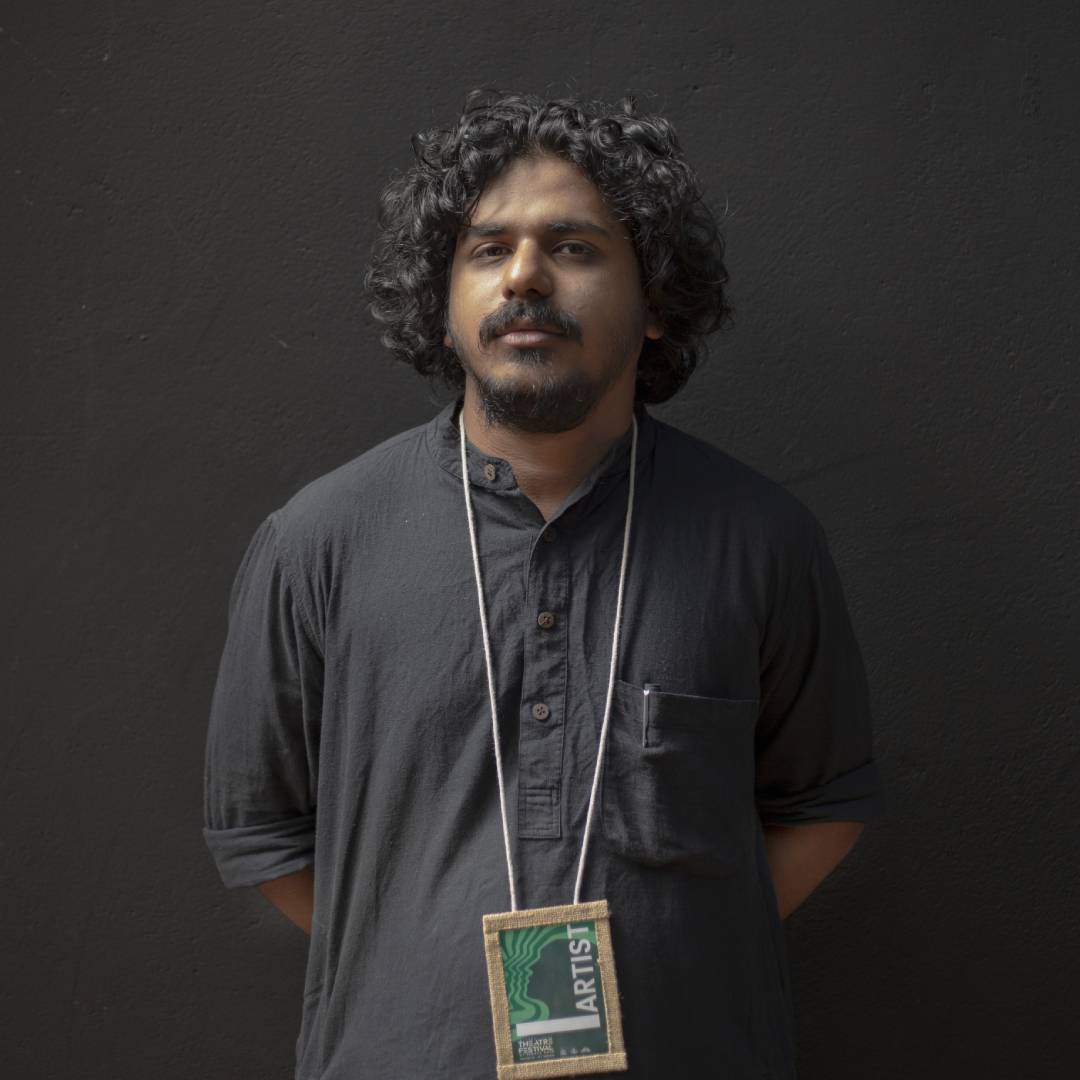
Moderator
